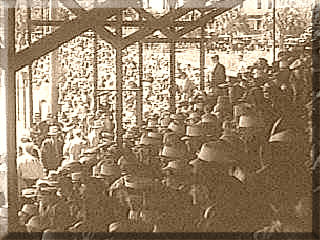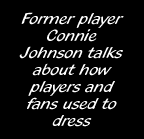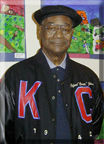
|
|
Fans identified with their teams and their favorite players. It didn't matter whether the team was in their state or hometown, almost all fans had a team that was theirs. For African Americans this was an identification that gave them a sense of meaning in a world where they were regarded as a part from the mainstream. During the depression and WW II, baseball truly became the national pastime. In the midst of the hard economic times and the desperate circumstances of war people could escape to baseball and find a sense of comfort in the sport. Rowland
Porter captured the aura of baseball- "It
was something we all had in common, and it just made the work day pass
by a lot quicker. Maybe that's why they call it the national pastime."
Attendance at a Negro League baseball game was a happening. From the 1930's into the 1950's those who attended dressed for the occasion. Since sometime in the 1950's baseball games became a more casual appearance for the fans. In the north both African Americans and whites attended Negro league games. By contrast, in the South, African Americans made the largest group attending the games.
"Everybody
got dressed to the nines to go to the ball game, not like today, when
people dress like they're going to rake leaves. Negro league games,
especially the big ones, were THE event of the week." |
||||||







